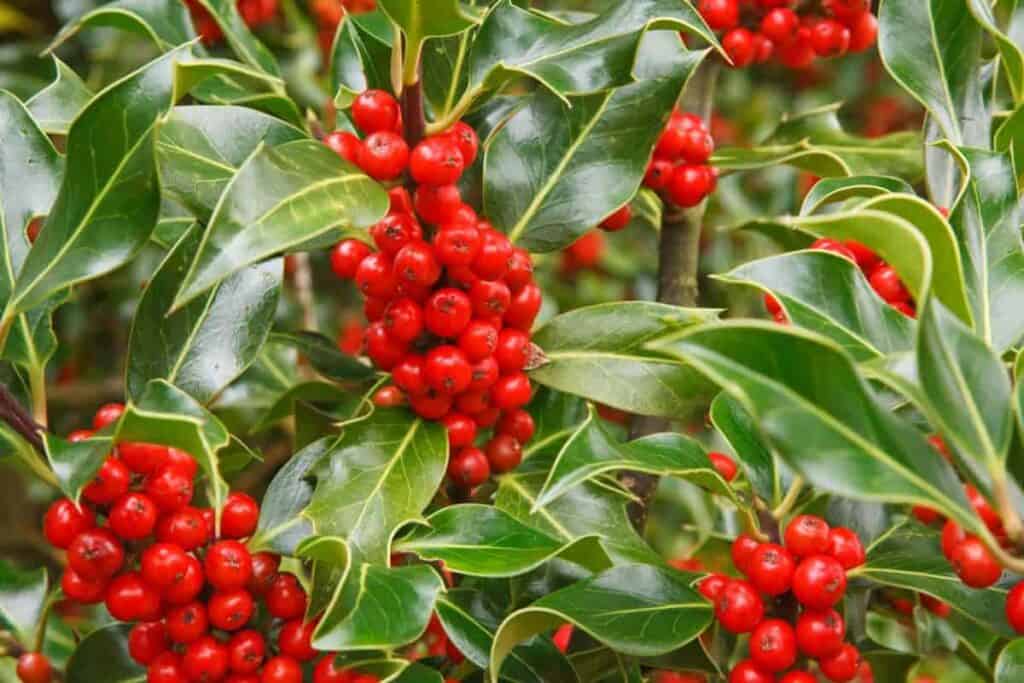Many of the old gardens around Charleston, West Virginia, have beautiful red-berried American hollies, Ilex opaca, at Christmas time. I envied them but, living in a rented house, did not want to put much money into planting.

My Holly Plants Arrived
One day, though, some 19 years ago, I saw an advertisement for small male and female holly plants and sent the necessary check. When the plants arrived, they seemed so tiny I felt sure it was money thrown away, but I planted them in the backyard.
About five years later, my sister looked unhappily at our little front yard and said, “Why don’t we move the holly bushes to the front? They would look better than all that crabgrass.” The hollies were 4′ feet tall.
Trim And Fertilize Every Spring
We bide our time, and each spring is trimmed and fertilized. As a result, the plants grew a foot a year!
When 10’ feet tall, one had to be moved to make space for a new driveway. Then, unfortunately, its leader was damaged, and its top growth stopped.
My handyman helped me force a side branch to an upright position, and we fastened it in place with a thin wood splint to the main trunk.
Top growth resumed, and now, while 18” inches shorter than the other tree, both are nearly 20’ feet tall, branched from the ground.
Spraying With Fruitone
Both trees flowered well, but the female tree was never heavily berried—pretty but not covered with red in winter. Then, last spring, by accident, I came across an article in the April issue talking about spraying hollies with Fruitone.
I invested in a package and sprayed it liberally. Quantities of berries formed. I kept my fingers crossed for fear the berries might fall off. They didn’t, and this past fall and winter, my female tree was a sight to behold—covered with clusters of bright berries.
41346 by MARY L. EVANS
